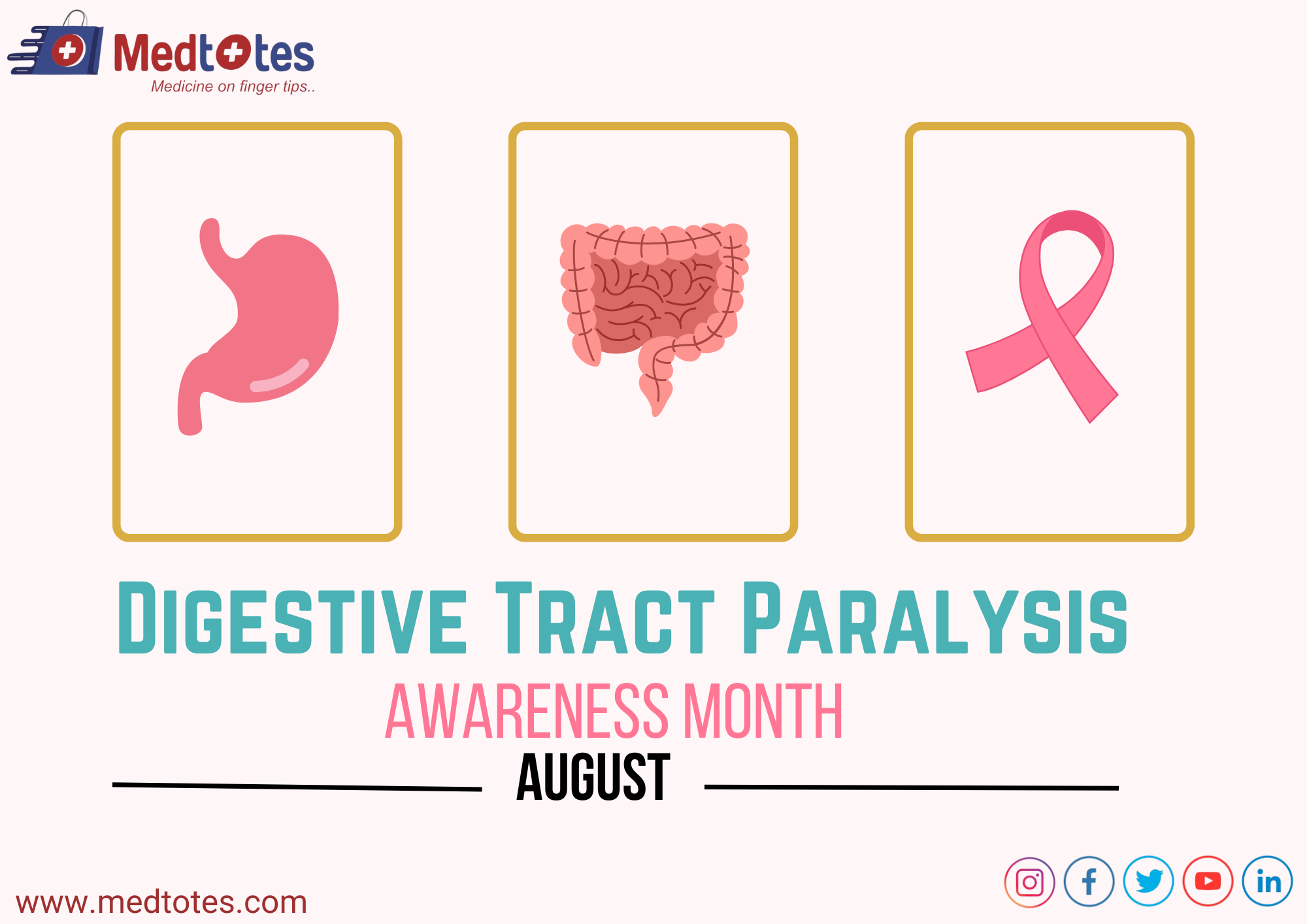I. INTRODUCTION
Digestive tract paralysis, also known as gastric motility dysfunction, is a condition in which the digestive system’s normal movement and function is interrupted or slowed. This can happen anywhere in the digestive tract, including the esophagus, stomach, small and large intestines. The consequences of digestive tract paralysis on general health can be severe, as it can cause bloating, stomach pain, nausea, vomiting, and difficulties swallowing. Neurological illnesses such as Parkinson’s disease or multiple sclerosis, certain drugs, surgery, and medical problems such as diabetes or hypothyroidism are common causes or risk factors for this syndrome.
II. SYMPTOMS AND DIAGNOSIS
- Constipation,
- Diarrhea,
- Abdominal Distension,
- Loss of Appetite, and
- Weight loss.
Patients may suffer from malnutrition and dehydration in severe cases due to an inability to adequately absorb nutrients from diet.
A complete medical history review, physical examination, and several diagnostic techniques such as X-rays, CT scans, and endoscopy are commonly used to diagnose digestive tract paralysis. Motility tests may also be performed to evaluate the movement and function of the digestive system.
Bloating, diarrhea or constipation, and a sense of fullness even after consuming tiny amounts are all classic signs of digestive tract paralysis. Individuals may also endure weight loss, starvation, and dehydration. Doctors may use a variety of procedures to identify this illness; including stomach emptying studies, imaging studies, and blood testing. Seeking medical attention for a correct diagnosis is critical, as immediate treatment can help manage symptoms and improve quality of life.
III. CAUSES AND RISK FACTORS
A variety of conditions can lead to the development of paralysis. Damage to the nerves that control the muscles of the digestive tract, which can occur as a result of illnesses such as diabetes, multiple sclerosis, or Parkinson’s disease, is a common cause. Other risk factors include some drugs that might impede digestion, as well as surgeries or procedures that can harm the nerves or muscles involved in digestion. High amounts of stress or anxiety, for example, can also contribute to the development of paralysis.
IV. TREATMENT OPTIONS FOR DIGESTIVE PARALYSIS
It is determined by the condition’s underlying causes and severity. In moderate situations, lifestyle changes such as dietary changes, stress management strategies, and regular exercise may be advised. Medications that stimulate digestive tract muscles or regulate digestion can also be administered. In more severe situations, surgical treatments such as the installation of a stomach pacemaker or blockage removal may be required. Physical and occupational therapy can also help improve muscular function and control the symptoms of intestinal paralysis.
V. MANAGEMENT AND RECOVERY STRATEGIES
To assist relieve stress, learn relaxation techniques such as deep breathing and meditation. Keeping a food journal can also assist in identifying trigger foods and avoiding them, while embracing a high-fiber diet can support regular bowel movements. Seeking help from a therapist or a support group can provide emotional support as well as coping mechanisms. Individuals suffering with intestinal paralysis should collaborate closely with healthcare experts to build a personalized management strategy that addresses their specific requirements and symptoms.
VI. CONCLUSION
In conclusion, controlling intestinal paralysis necessitates a multi modal strategy that involves lifestyle adjustments, nutritional changes, and mental support. Individuals can improve their quality of life and effectively manage their illness by applying these techniques and collaborating closely with healthcare providers.

